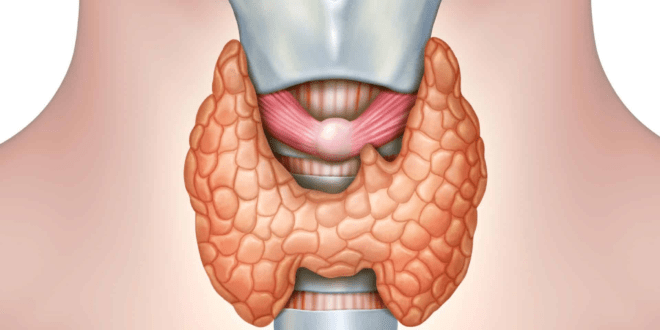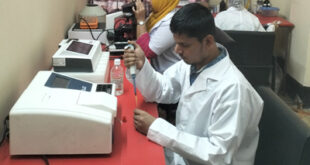Thyroid function tests 01941-123488
What are thyroid function tests?
Thyroid function tests are blood tests used to check for thyroid problems. The tests measure the amount of 3 hormones. They are thyroid stimulating hormone (TSH), thyroxine (T4), and triiodothyronine (T3) . The pituitary gland located in the brain makes TSH and sends it to the thyroid gland. TSH controls the production of thyroid hormones in the thyroid gland. The combination of the TSH test T3 test and T4 test is known as a thyroid function test (TFT).

Why would I need thyroid function tests?
The thyroid gland has an important role in controlling metabolism. Hormones made by the thyroid gland influence :
- heart rate
- blood pressure
- body temperature and
- weight
Too much or too little of these hormones can make us ill.
We might need thyroid function tests if we have symptoms of:
- hyperthyroidism (an overactive thyroid)
- hypothyroidism (an underactive thyroid)
Signs symptoms of hyperthyroidism (an overactive thyroid) are:
- sensitivity to heat
- weight loss
- fast heartbeat
- nervousness
- sweating
- increased frequency of stools (pooing)
Signs and symptoms of hypothyroidism (an underactive thyroid) are:
- tiredness
- weakness
- weight gain
- muscle aches
- constipation
- slow heart rate
- sensitivity to cold
What is the normal range for T3 T4 and TSH?
TSH = 0.5 to 5.0 mIU/L(milli-international units per liter)
Free T3= 3.8-4.4 pg/mL and
Free T4= 1.4-1.77 ng/dL
What is a TSH Test?
TSH stands for thyroid stimulating hormone. High or low levels may be a sign of a thyroid problem. The thyroid is a small, butterfly-shaped gland in the front of neck.
Thyroid hormones affect nearly every organ in the body, including heart. They help control our weight, body temperature, muscle strength, and even our mood. If we don’t have enough thyroid hormones in our blood, many of our body functions slow down.
Thyroid gland is controlled by a gland called the pituitary gland which makes thyroid stimulating hormone (TSH). TSH tells the thyroid how much thyroid hormone it needs to make.
If the thyroid hormone levels are low in blood , the pituitary gland makes larger amounts of TSH. If the thyroid hormone levels are high in blood , the pituitary gland makes lower amounts of TSH.
What is it used for?
A TSH test is used to find out how well our thyroid is working. It can tell if we have hyperthyroidism or hypothyroidism in our blood. But it can’t show what is causing a thyroid problem. This test is mainly done for finding thyroid problem.
What is T3?
Triiodothyronine (T3) is the active form of thyroid hormone synthesized by the thyroid gland. It can readily go into the cells of the human body. Every cell of the human body has thyroid receptors. TSH stimulates the thyroid gland for the production of T4.
What is T4?
Both T3 and T4 are iodine-containing hormones . T4 is the predominant form, serves as a reservoir for T3 . T3 is the more potent and biologically active hormone. Once released into the bloodstream, T4 undergoes conversion into T3 in peripheral tissues, where it exerts its effects on cellular metabolism, energy expenditure, protein synthesis and many other functions.
The impacts of the thyroid hormones on the body are as follow:
- They expand the cardiovascular yield, pulse, ventilation rate, and basal metabolic rate
- They improve the impacts of catecholamines
- They build mental health
- They thicken endometrium in females
- They build catabolism of starches and proteins
If the thyroid hormones delivered in small amount, the body may hinder the digestion, offering to ascend to side effects of hypothyroidism. On the other hand, if the thyroid hormones delivered in large amount, causes hyperthyroidism
Training center of Thyroid function tests:
HRTD Medical Institute is a Training center of :
- Biochemical tests
- Hematological tests
- Serological tests
- Microbiological tests
Provided by : Mamun Miah ( BSc and MSc in Biochemistry & Molecular Biology)
Biochemist and Lecturer of HRTD Medical Institute. ( 01941-123488)
Production of TSH
TSH (thyroid-stimulating hormone) is produced by the pituitary gland in response to thyrotropin-releasing hormone (TRH) from the hypothalamus, and its primary function is to stimulate the thyroid gland to produce thyroid hormones (T3 and T4). These thyroid hormones are crucial for regulating the body’s metabolism, heart rate, brain development, and other essential functions. TSH levels act as a feedback mechanism; high TSH indicates low thyroid hormone levels, signaling the need for more production, while low TSH indicates excess thyroid hormones, signaling a reduction in production.
Production of TSH
- Hypothalamus releases TRH: The hypothalamus, located in the brain, releases TRH.
- TRH stimulates the pituitary gland: TRH travels to the anterior pituitary gland, signaling it to release TSH into the bloodstream.
- TSH stimulates the thyroid: TSH then travels to the thyroid gland and stimulates it to produce and release thyroid hormones (T3 and T4).
Functions of TSH
- 1. Stimulates thyroid gland growth and activity:TSH promotes the accumulation of iodide and the synthesis and release of thyroid hormones.
- 2. Regulates metabolic rate:Thyroid hormones, stimulated by TSH, control how the body uses calories and energy.
- 3. Maintains heart rate and digestive function:TSH, via thyroid hormones, influences heart rate and the speed at which food moves through the digestive tract.
- 4. Supports brain development:Thyroid hormones are essential for brain development, particularly in children.
- 5. Controls muscle function and bone maintenance:TSH indirectly affects muscle contraction and the rate at which the body replaces dying cells for bone and skin maintenance.
- 6. Provides negative feedback:Thyroid hormone levels provide feedback to the hypothalamus and pituitary gland, suppressing the release of TRH and TSH when levels are high, and increasing their release when le
 Pathology Training Institute in Bangladesh Best Pathology Training Institute in Bangladesh
Pathology Training Institute in Bangladesh Best Pathology Training Institute in Bangladesh


